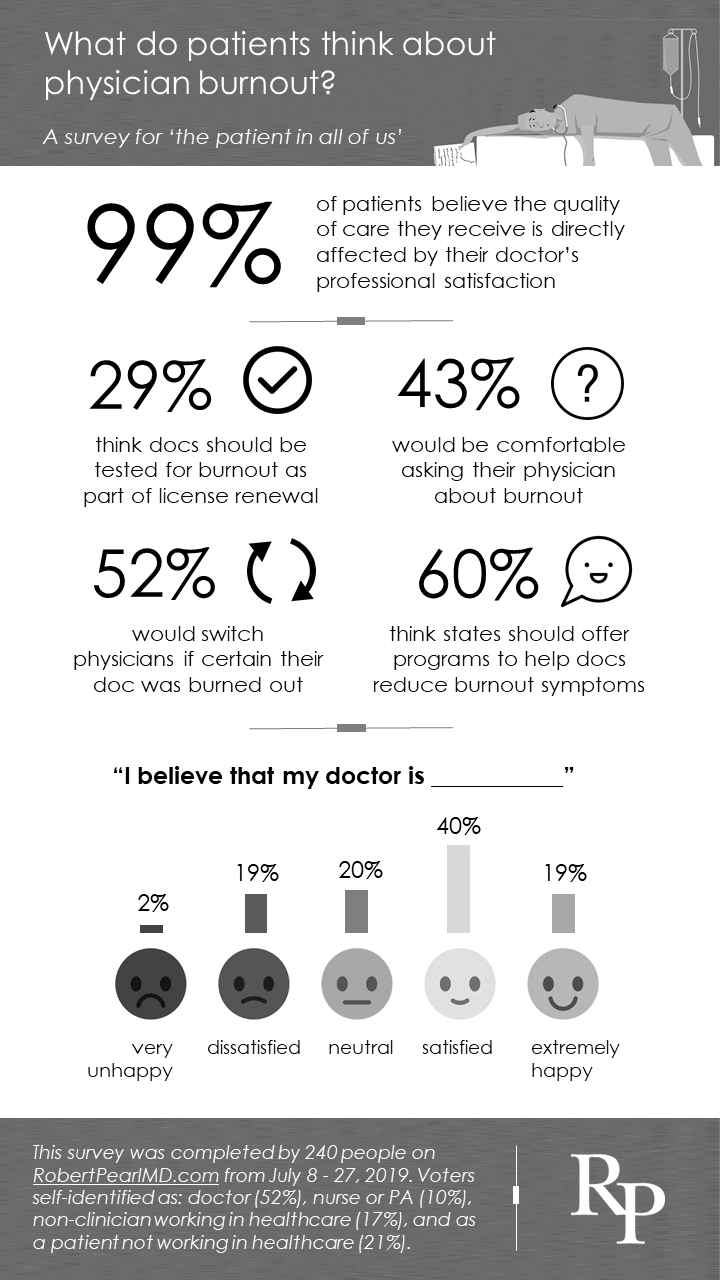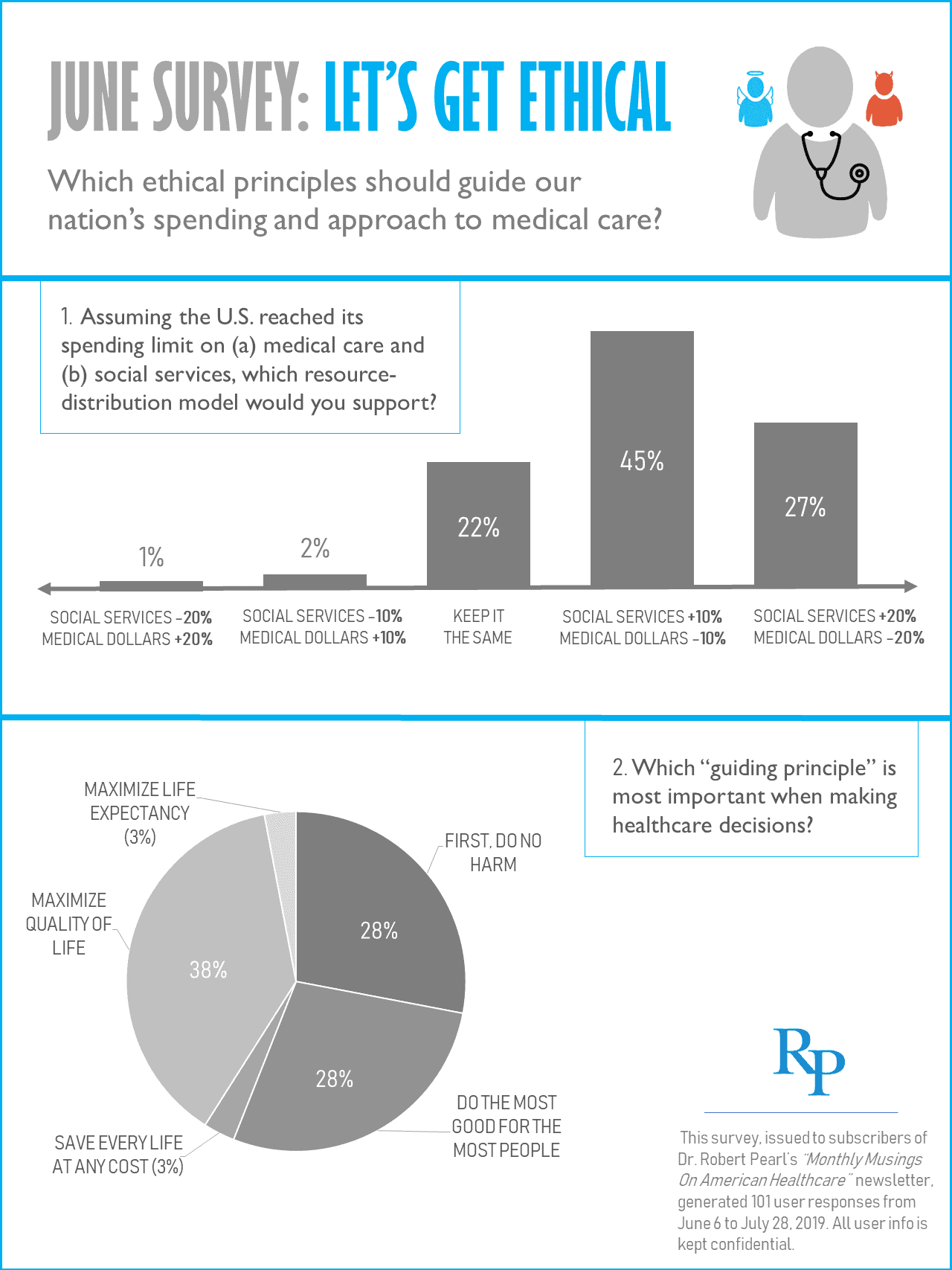In July, readers of the “Monthly Musings On American Healthcare” newsletter were asked to offer a different POV on burnout. Whether they work in healthcare or not, readers were asked to put on their (proverbial) patient gowns and think about whether physician burnout affects the quality of medical care. Here’s what readers had to say:
All individual responses are private and kept confidential. Each month, collective responses from reader surveys are featured in the Monthly Musings on American Healthcare newsletter. Click here to sign up for free.
RESULTS: The June Reader Survey
Health-policy experts have pointed out that Americans spend more than any other nation on medical care but comparatively less on social services (childcare, nutrition programs, and parental leave). With that in mind, last month’s survey asked you to consider which ethical principles should guide our healthcare spending and approach to medical care.
Here’s what you said (click the image for a closer look):
The results are telling. About 7 in 10 of respondents would favor increased spending on social services (with offsetting decreases in medical spending). I believe these results reflect growing awareness of three interrelated research findings: (1) “social determinants” have a powerful impact on the health of our communities, (2) higher spending on medical care doesn’t result in higher quality, and (3) the U.S. healthcare system lags countries that allocate a higher share of resources to social needs.
Responses to the second question offer evidence that medical culture is slowly changing. There was a time when “first do no harm” was the default axiom of nearly every clinician. Moreover, doctors of the past wouldn’t have even considered elevating a patient’s “quality of life” above the directive to keep a patient alive at all costs. Whether these shifts in mindset will translate into the practice of medicine, or alter end-of-life care in the future, remains unclear.
Dr. Robert Pearl is the former CEO of The Permanente Medical Group, the nation’s largest physician group. He’s the bestselling author of “Mistreated: Why We Think We’re Getting Good Health Care–And Why We’re Usually Wrong” and a Stanford University professor. Follow him on Twitter @RobertPearlMD.









Methinks burnout is a very individual issue. One doc’s pleasure might be another’s poison. Suggestion – figure out who is thriving in the current medical environment. Figure out why. It may be much more helpful than looking at the unhappy ones.